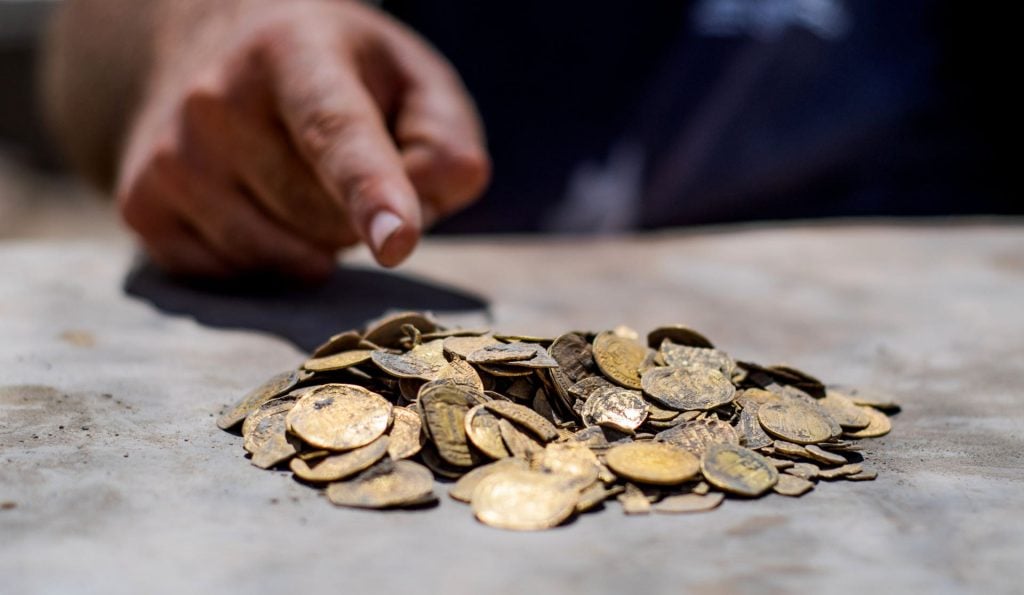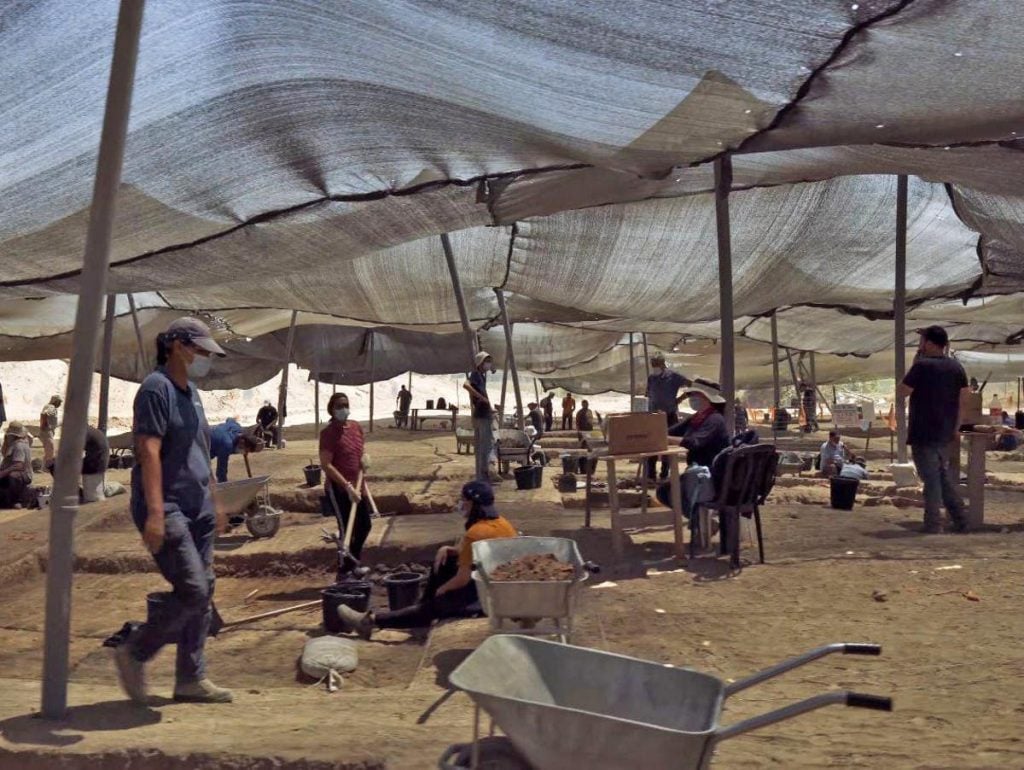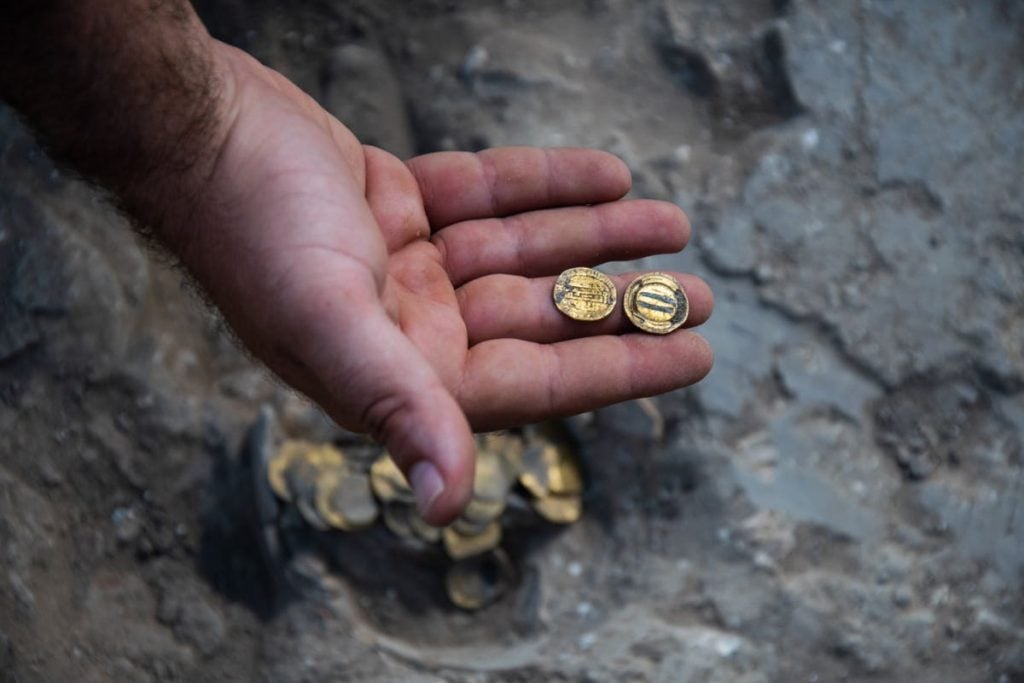Art World
Two Teens Volunteering on an Archaeological Dig in Israel Uncovered Solid-Gold Treasure Buried More Than 1,000 Years Ago
The coins date to the Abbasid Caliphate, which ruled 1,100 years ago during the Golden Age of Islam.

The coins date to the Abbasid Caliphate, which ruled 1,100 years ago during the Golden Age of Islam.

Sarah Cascone

A pair of 18-year-olds recently made an unexpected discovery when they unearthed a cache of 424 rare golden coins while volunteering at an archaeological dig conducted by the Israel Antiquities Authority. Such a large amount of gold is, it goes without saying, extremely valuable; it had been buried inside a clay jar for safekeeping more than 1,000 years ago.
“I dug in the ground and when I swept away the soil, I saw what looked like very thin leaves,” one of the teenagers, Oz Cohen, said in a statement. “When I looked again I saw that they were gold coins. It was really exciting to find such a special and ancient treasure.”
In addition to full gold dinar coins, the hoard also contains 270 smaller fragments, reports Haaretz. In 9th century Israel, cutting gold and silver coins to make small change in lieu of cheaper bronze and copper currency that had become scarce was a common practice, according to Robert Kool, a coin expert with the Israel Antiquities Authority.
The 24-carat pure gold coins date to the Abbasid period, around 1,100 years ago. The Abbasid Caliphate was a Muslim dynasty during what is known as the Golden Age of Islam, ruling over Persia and North Africa from its capital in Baghdad.

The archaeological site in central Israel where teenagers found a cache of ancient golden coins buried in a clay jar. Photo by Yoli Shwartz, courtesy of the Israel Antiquities Authority.
But the coins also include a fragment of a gold solidus minted in Constantinople featuring Theophilos, the Byzantine emperor from 829 to 842—possible evidence of trade and cultural exchange between the two ancient empires. It is the only coin of its kind found in Israel to date.
“Finding gold coins, certainly in such a considerable quantity, is extremely rare,” said Liat Nadav-Ziv and Elie Haddad, who oversaw the dig, in a statement. “The person who buried this treasure 1,100 years ago must have expected to retrieve it, and even secured the vessel with a nail so that it would not move.”
The Israel Antiquities Authority is keeping the exact location of the discovery—at a dig conducted ahead of planned construction in Yavneh, south of Tel Aviv in central Israel—under wraps to avoid looting from would-be treasure hunters. The cache weighs 845 grams, or close to two pounds. By weight alone, that much gold would be worth $52,618 today.
See more photos of the coins and a video about the discovery below.

A cache of ancient golden coins was found buried in a clay jar in Israel. Photo by Yoli Shwartz, courtesy of the Israel Antiquities Authority.

A cache of ancient golden coins was found buried in a clay jar in Israel. Photo by Yoli Shwartz, courtesy of the Israel Antiquities Authority.